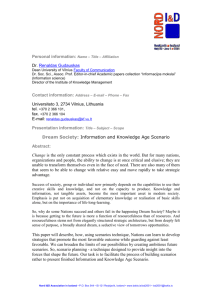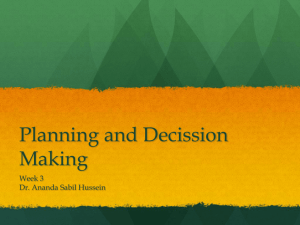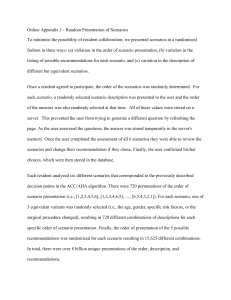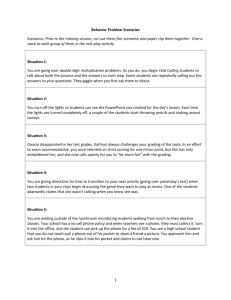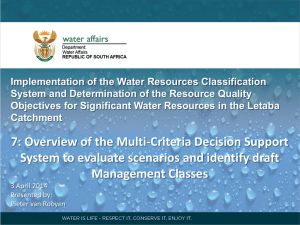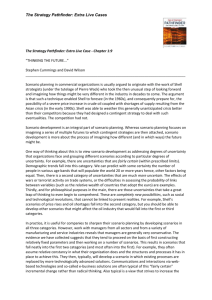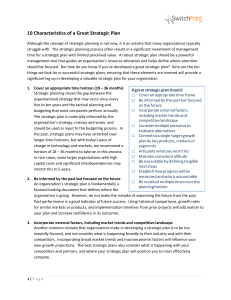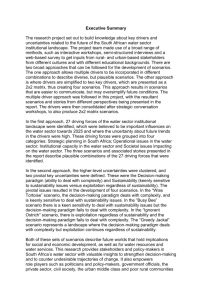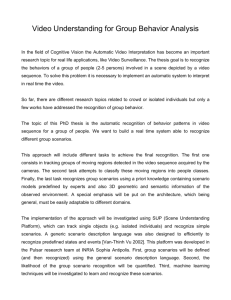abstract
advertisement
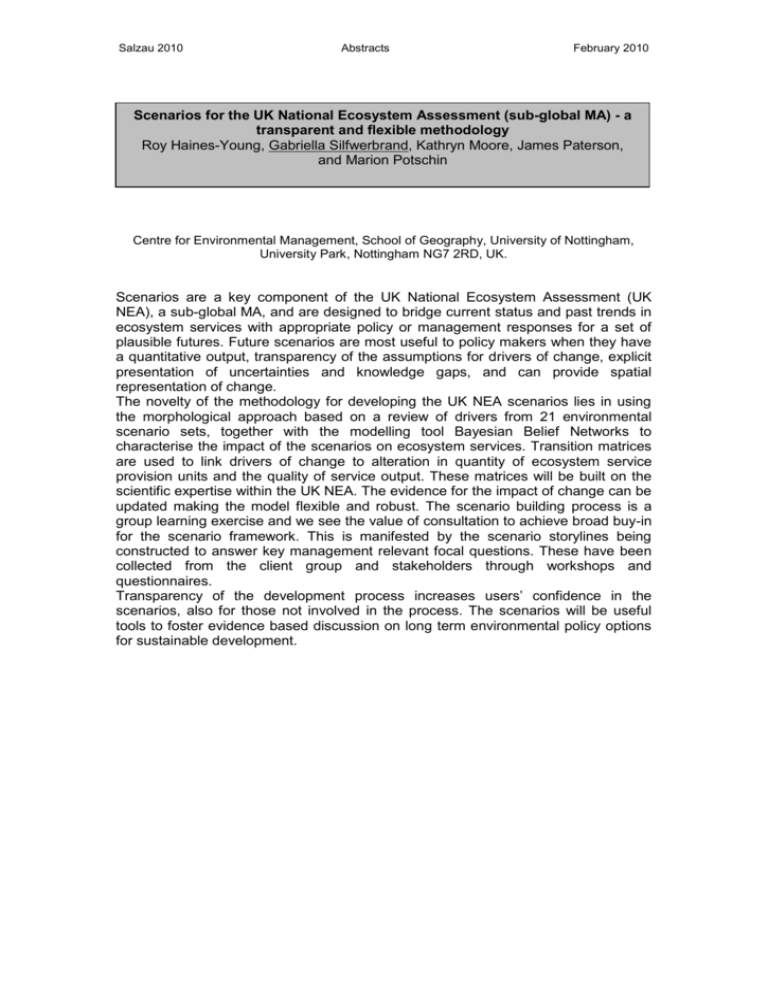
Salzau 2010 Abstracts February 2010 Scenarios for the UK National Ecosystem Assessment (sub-global MA) - a transparent and flexible methodology Roy Haines-Young, Gabriella Silfwerbrand, Kathryn Moore, James Paterson, and Marion Potschin Centre for Environmental Management, School of Geography, University of Nottingham, University Park, Nottingham NG7 2RD, UK. Scenarios are a key component of the UK National Ecosystem Assessment (UK NEA), a sub-global MA, and are designed to bridge current status and past trends in ecosystem services with appropriate policy or management responses for a set of plausible futures. Future scenarios are most useful to policy makers when they have a quantitative output, transparency of the assumptions for drivers of change, explicit presentation of uncertainties and knowledge gaps, and can provide spatial representation of change. The novelty of the methodology for developing the UK NEA scenarios lies in using the morphological approach based on a review of drivers from 21 environmental scenario sets, together with the modelling tool Bayesian Belief Networks to characterise the impact of the scenarios on ecosystem services. Transition matrices are used to link drivers of change to alteration in quantity of ecosystem service provision units and the quality of service output. These matrices will be built on the scientific expertise within the UK NEA. The evidence for the impact of change can be updated making the model flexible and robust. The scenario building process is a group learning exercise and we see the value of consultation to achieve broad buy-in for the scenario framework. This is manifested by the scenario storylines being constructed to answer key management relevant focal questions. These have been collected from the client group and stakeholders through workshops and questionnaires. Transparency of the development process increases users’ confidence in the scenarios, also for those not involved in the process. The scenarios will be useful tools to foster evidence based discussion on long term environmental policy options for sustainable development.
